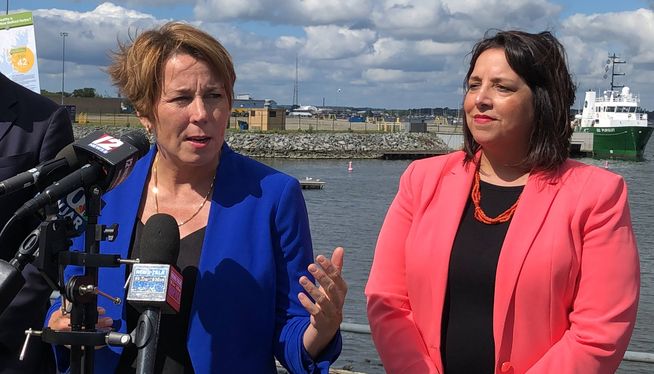
BOSTON (AP) — Massachusetts lawmakers will see their pay jump in the new year, as will statewide officeholders including the incoming governor.
Minimum wage workers will also see a modest increase.
Lawmaker pay hinges on changes to the state’s median household income. The median household income in Massachusetts rose by about 4.4% over the past two years.
The 4.4% increase brings the base pay for lawmakers to more than $73,600, an increase of about $3,100. Lawmakers in leadership positions or who chair committees receive stipends that bump up their pay further.
The pay for statewide officials is also set to rise. The governor’s base pay will jump to more than $222,000. That’s about $37,000 more than what Republican Gov, Charlie Baker currently is paid.
An aide to incoming Democratic Gov. Maura Healey said both she and incoming Democratic Lt. Gov. Kim Driscoll “will accept the salary that has been established by statute.”
The governor also receives a $65,000 housing allowance. By law, the governor is barred from receiving earned income from any other source, but may receive unearned or passive income.
Healey is set to be sworn in as governor on Jan. 5.
Politicians aren’t the only ones who will see a pay increase in 2023.
As of Jan. 1, the state’s minimum wage will tick up from $14.25 to $15 per hour, making it one of the highest minimum wages in the country.
Tipped employees will also get a raise on Jan. 1, and must be paid a minimum of $6.75 per hour, provided their tips bring them to at least $15 per hour.
The minimum wage increase was part of a bill signed into law by Republican Gov. Charlie Baker in 2018 that gradually raised the state’s minimum wage from $11 per hour to $15 per hour by 2023.
Also on Jan. 1, a new law kicks in that will increase taxes on those earning more than $1 million a year.
The “millionaire tax” constitutional amendment imposes a 4% surtax on the portion of an individual’s annual income that exceeds $1 million. Those making up to $1 million, but not exceeding that amount, won’t pay new taxes.
Supporters say the new tax will generate about $2 billion in annual revenue that could be used for education and transportation. Opponents, including business groups, have warned the change will cost jobs while driving away some of the state’s wealthiest citizens.












